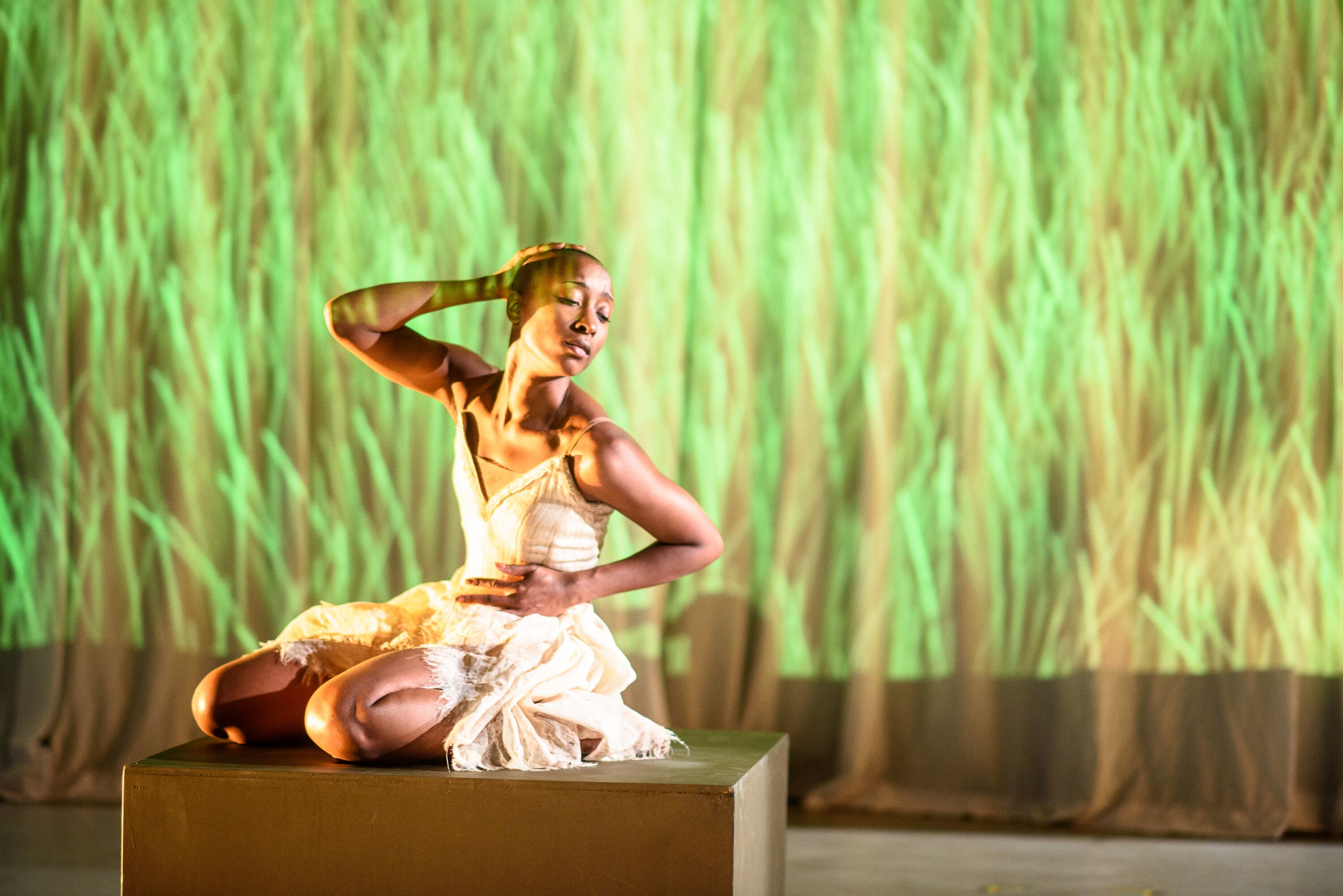
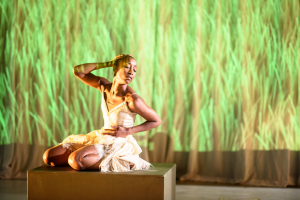 [rating=4]The entire title of this production is Black Like Me: An Exploration of the Word Ni–er. It’s billed as “a multidisciplinary evening length work that explores the reverb of a single word in a global community.” Those two sentences are a lot to take in. The production, too, is a lot to take in. Appropriately so.
[rating=4]The entire title of this production is Black Like Me: An Exploration of the Word Ni–er. It’s billed as “a multidisciplinary evening length work that explores the reverb of a single word in a global community.” Those two sentences are a lot to take in. The production, too, is a lot to take in. Appropriately so.
I say “production,” but it’s more of an experience, and it begins as soon as you enter the lobby. The preshow music, which you later learn was curated by the creator’s 13 and 14-year-old dance students, is riddled with the n-word. And it’s loud. There is no censoring and no ignoring. It sets the tone from the start. And then you walk into the theater.
On stage, a conversation is projected–social media posts using the hashtag #thewordnigger scroll and flip across a screen. Many of the comments are dated from previous shows; others are from this evening, and more appear as people settle in. The audience is encouraged to engage in the discussion using the hashtag on social media or an anonymous messaging system and, in this way, it’s obvious that the idea isn’t just to start a conversation, but to facilitate one.
Dance artist and choreographer Jade Solomon Curtis is the visionary behind the project and the only performer throughout. Her performance is enhanced and layered with original work, including music by VIBEHEAVY, costuming by Ronalee Wear, lighting by Reed Nakayama, and visual media by Daniel Barnes. Adding to the complex conversation are various texts, including photos from lynchings, news reports and dashcam video of racial profiling, and a clip of Richard Pryor Live on the Sunset Strip. In most scenes Curtis is the focal point, although in a powerful panel discussion mid-production, she continues to dance while Gail Boyd, President of Gail W. Boyd, P.C., an entertainment law firm, moderates a conversation. It involves three other individuals on stage, two of whom are Milwaukeens (Boyd explains that they make it a point to invite and include local leaders at every tour stop), and two microphones are set up for audience members to participate in the discussion. During the entire scene, Curtis dances in the space between the panelists on stage–bending, collapsing, spinning, shaking, moving, fluidly, gracefully. The social media conversation is projected again in this scene, and one message reads, “The movement helps to explore the pain in the word n—er.”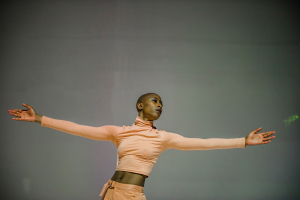
The production ends with another facilitated discussion, this one more open with many audience members stepping up to the mic. Some young black viewers continue to defend their use of the word by people in their community, explaining that it is a way to reclaim the word. Panelist Walter Beach III responds, “We cannot deconstruct a word we did not construct.” The conversation is, understandably, emotionally charged; it is also civil and productive. “We don’t judge people,” Boyd says. “We judge actions. We judge words.” Each illustrates this in their willingness to listen and respond thoughtfully and with respect.
One young black woman speaks up to take issue with some of the content and the portrayals within the production. She says she had to leave the theater at one point because she was so bothered. “The beauty of art is to make you uncomfortable,” replies a panelist. “So is the word n—–,” the viewer responds.
The room does not come to consensus about the use of the n-word, although most seem to come to understand Curtis’s message that, “It’s not just the word–it’s everything attached to it.” In a powerful moment, a 15-year-old young black man steps up to the mic, admits to using the word casually quite often, but says he will never use the word again after seeing the show.
Black Like Me succeeds in staging and facilitating a conversation, informing, teaching, and moving its audience. “We need stuff like this,” one viewer said, and I completely agree.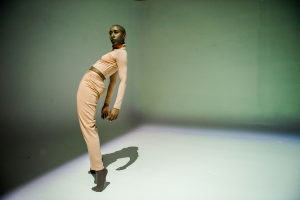
Black Like Me was performed at the Marcus Performing Arts Center in the Wilson Theater at Vogel Hall on Wednesday, February 12. There was a youth performance the following morning — a special performance in which, as production explained, adults can’t speak. I was not in attendance for this second Milwaukee performance, but as a high school teacher, I wish I had known about it earlier and could have brought my students.
The Milwaukee tour date is the last listed on the production’s website, but I do hope the show continues to run. We do, indeed, need more work like this.
The production is supported by the New England Foundation for the Arts’ National Dance Project with lead funding from the Doris Duke Charitable Foundation and the Andrew W. Mellon Foundation. Additional support for Black Like Me is provided by the Arts Midwest Touring Fund, a program of Arts Midwest that is funded by the National Endowment for the Arts, with additional contributions from The Wisconsin Arts Board and the Crane Group.
This was a special event as part of Black History Month. Thanks to The Marcus Theatre for bringing in this special show.


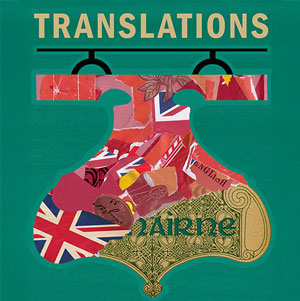


More Stories
“Stardust” Reviewed by Jeffrey Leibham
Finding Paul Lisnek
“Mozart and His Mentors”- Music of the Baroque reviewed by Julia W. Rath